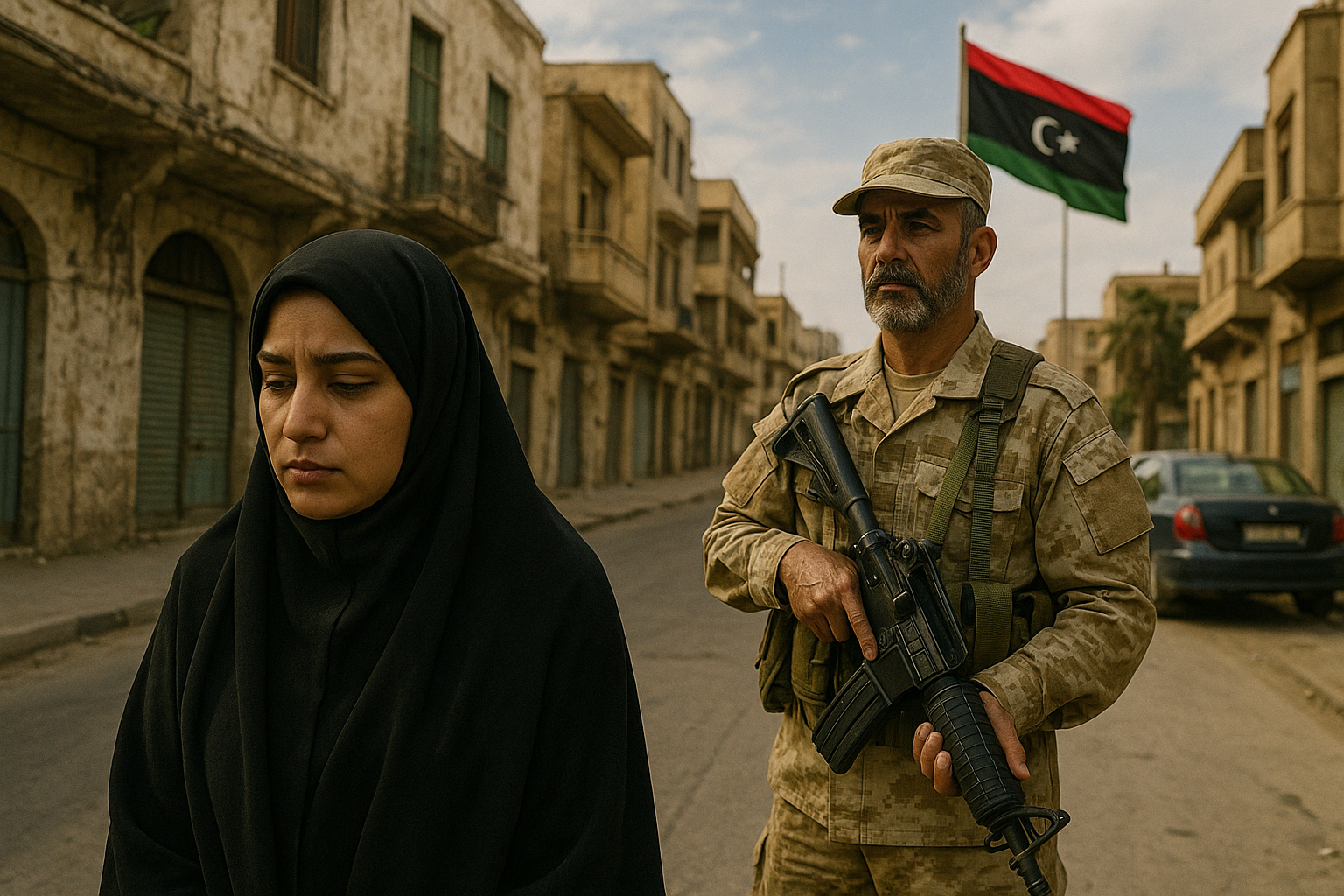The Paradox of Protection: Male Guardianship and Women’s Struggle for Freedom in Libya
The study reveals how Libya’s patriarchal system, under the guise of male guardianship, traps women in cycles of violence, dependency, and silence. Yet, amid legal voids and social control, Libyan women are increasingly defying these norms, asserting autonomy, and demanding justice.

A study conducted by researchers from the Interdisciplinary School of Health Sciences at the University of Ottawa and the Faculty of Public Health at the University of Benghazi exposes the deep contradictions at the heart of Libya's patriarchal society. Based on interviews and focus groups with women and key informants in Tripoli, Benghazi, and Sabha, the research reveals that male guardianship, celebrated as protection, often serves as a tool of domination and violence. It portrays a country where gender-based violence (GBV) is normalized, institutions are weak, and women's safety depends on the very men who control them.
A Nation Trapped Between Law and Tradition
The study situates GBV in Libya as both a public health crisis and a violation of human rights. Despite symbolic reverence for women, patriarchal systems define their existence. For decades, Libyan women have lived under layers of control, first by fathers, then brothers, and later husbands. This guardianship model, rooted in cultural and religious interpretations, denies women autonomy over movement, marriage, and work. Libya's 1953 Penal Code still lacks provisions criminalizing domestic violence, sexual harassment, or marital rape, focusing instead on moral conduct. Even survivors who report abuse risk prosecution under laws criminalizing extramarital sex. Although Libya has signed international conventions like CEDAW, its commitments remain largely superficial. The 2023 government ban on the term "gender" in official policy further silenced progress, reinforcing the taboo around women's rights.
Everyday Violence Behind Closed Doors
Through vivid testimonies, the study reveals that most Libyan women equate GBV with domestic violence. Participants spoke of beatings, isolation, and emotional control at the hands of husbands or male relatives. Some endured years of violence, with one woman describing her husband putting out cigarettes on her skin. Others faced economic coercion, salaries confiscated by fathers, inheritances denied, and forced marriages imposed as "family duty." Sexual coercion within marriage was common but rarely discussed, as law and religion deny recognition of marital rape. Beyond the home, women faced harassment in public spaces, from streets to workplaces. Many withdrew from school or accepted early marriage out of fear. One mother confessed she planned to marry off her daughter to protect her from assault, believing education offered less safety than confinement.
The Illusion of Male Protection
Libyan society's concept of safety rests on the presence of a male guardian, yet this dependence often deepens women's vulnerability. "The concept of women living alone does not exist," one participant said. Women who flee abusive marriages have no legal or social refuge and often return to the same cycle of violence. Even physical aggression is reframed as care, "He hits me out of fear for me," another woman explained. This mindset, reinforced by conservative religious interpretations, ensures that male authority is seen as a divine duty. Legal structures amplify this control: women need a guardian's consent to marry and, in some cases, to travel abroad. Even men who oppose such restrictions feel compelled by social pressure to enforce them, perpetuating a system of domination disguised as moral order.
Emerging Voices of Resistance
Despite the suffocating social order, the study highlights growing resistance among Libyan women. Particularly in Benghazi, participants described a "rebellion" against silence. Through social media and the internet, women are learning about their rights and sharing their experiences. Economic crisis and post-conflict realities have forced many into the workforce, creating unexpected pathways to independence. One widow described fighting for her right to drive and claim her pension, declaring, "A woman must fight to get her rights." Younger women also reported confronting harassers or contacting the police, actions unimaginable a decade earlier. Yet, these acts of defiance invite backlash. Women who participate in awareness programs are often accused of "corrupting" others, showing that empowerment still comes at a social cost.
The Road to Reform and Equality
Across interviews and focus groups, participants voiced a common demand for reform: enforceable laws, shelters for survivors, and economic empowerment initiatives to reduce dependence on men. They called for psychological support, awareness campaigns, and the use of social media to educate the next generation. "She saw her mother beaten, so she expects it," one woman said, stressing the urgency of breaking intergenerational cycles of abuse. The study concludes that GBV in Libya is not an isolated crisis but the product of entrenched patriarchy, weak institutions, and economic inequality. Yet within this bleak reality, the resilience of Libyan women signals transformation. By redefining masculinity, reclaiming autonomy, and replacing guardianship with equality, Libya can move from symbolic reverence for women to genuine protection of their rights.
- FIRST PUBLISHED IN:
- Devdiscourse









